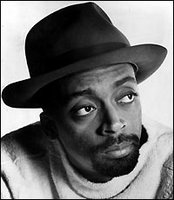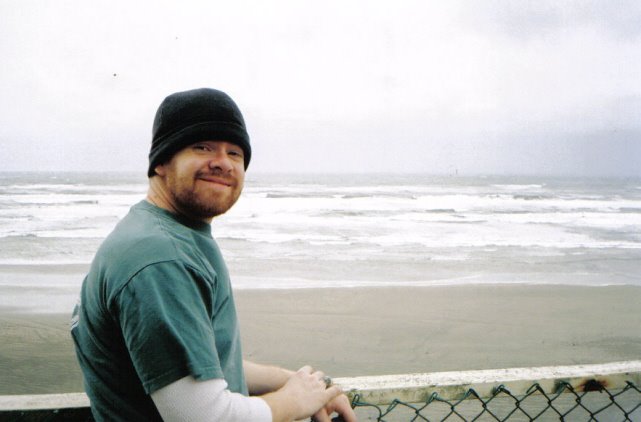Spike TV.
 Mr. Lee's films are not strangers to stirring up a storm. Tonight, a storm will stir his most recent film project.
Mr. Lee's films are not strangers to stirring up a storm. Tonight, a storm will stir his most recent film project.On HBO East, 40 Acres & A Mule Filmworks will debut Spike Lee's new four hour film "When the Levees Broke: A Requiem in Four Acts" covering the devastation of New Orleans by Hurricane Katrina.
I learned about this project last October, when the director was making his first trips to New Orleans. I had originally thought his travel plans were motivated by the desire to provide humanitarian relief. Shortly after, through reading and research, I realized it was his talents for provocative film-making that became the prominent reasons for his interest in the city.
I myself have been a visitor to the Big Easy. In May of 2003, I left Oregon for a professional conference held at the Hyatt Regency. While there I toured the Water district to see the beautifully restored plantation homes. I visited the French Quarter where I enjoyed my first "Hurricane" drink and discovered a little bar off the beaten path of Bourbon Street where pints of Guinness were poured with perfect heads for the price of a story and two Washingtons. I met a fine friend whom I had been in contact with through the marvels of the internet. We had decided to meet and enjoy the Cafe du Monde for chicory coffee and warm beignets. It was a moment I could have replayed a dozen times and never become bored. The music, food and conversation brought me to love N'awlins. The city seemed to me to have been like a closely-held dance partner. I walked along the streets aware of her rhythmic heartbeat, close to my own, and could have danced all day and night.
Unlike my cohorts, I decided to rent a car a travel in and out of the main city by staying in a suburban city of Kenner to the West. A stark comparison from the city was my reward. In Kenner I was stayed in a large apartment complex. A wretched dwelling offered to me by one of my coworker's niece who was away on vacation. I would run in the humid heat of the town only to witness the near-appalling conditions frequently seen in burbs near major airports. I passed several squalid homes with old cars on blocks in their front yards and was immediately reminded of my hometown.
My skin glistened with sweat in the hazy light of the late day and I stopped my run to ask for someone for directions to a grocery. Upon spotting them, I asked a group of six prepubescent boys where a local store could be found. Three or four of them stretched out their dark arms pointing me in the direction to my right and one asked me where I was from. "I'm from Oregon," I answered the young boy. "Or-ee-gn?" he replied in three syllables, "Well youz the whitest man I ever saws. Everyonez there as white as youz in Or-ee-gn?"
I smiled and thought for a second about that statement. I'd been raised not to think of skin color as a measure of a person's character, much as the Rev. Martin Luther King, Jr. had long preached; but I wondered then if this boy was curious more if everyone in my home state was a socially segregated as Kenner seemed to be from New Orleans, or if I was simply a template for comparing my pale skin to others in the rain-soaked Pacific Northwest. "No," I replied to the boy, "I'm very light-skinned because we see the sun less there. It rains a lot in Oregon." The boys thought about this and a few seemed to recoil, possibly at the thought of Oregon being wetter than Southern Louisiana. "I don know 'bout that, man. We sees a lota rain in 'ere." Around us, the very green lawns and trees-mixed-with-lampposts validated the boy's opinion. This area could have been the Garden District if it had the moxy of N'awlins. Instead, it was a suburb for the impoverished and segregated from the glamour of the city.
On my dozen or more block run to the store, I passed the reminders that this assessment of poverty was likely correct: five liquor stores; adult shops aplenty; dilapidated car yards; no-tell motels; and a 7-Eleven on every corner. Kenner was indeed a place kept from the view of the city, and its populace kept from going father than they had to. Much like the 9th Ward.
Spike, show the country why we mustn't overlook Katrina as the failure of the system that is was and is. Show why the people of the Lower Ninth Ward are no less important than those of Water Street. Show us your style for blending scenery with soul and silence with gravity.
This has been a calmer season in the Gulf for hurricanes, but another storm is forming in the area still devastated from last year.







<< Home